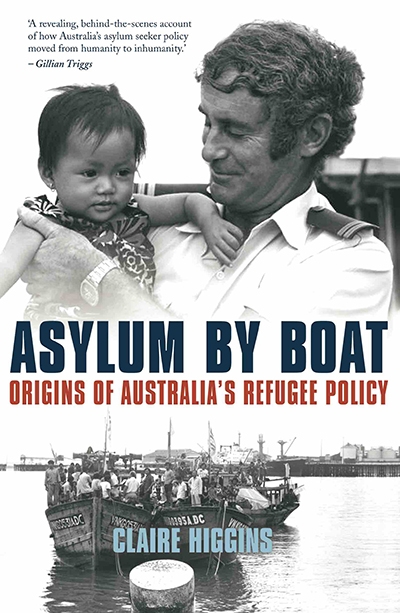Klaus Neumann
Asylum By Boat: Origins of Australia’s refugee policy by Claire Higgins
On December 7, the Australian parliament passed the Anti-Terrorism Bill (No. 2) 2005. According to Attorney-General Philip Ruddock, the new legislation places ‘Australia in a strong position to prevent new and emerging threats and to stop terrorists carrying out their intended acts’.1 Most controversially, the law introduces new sedition offences. But it also grants additional powers to the security services, most notably the Australian Federal Police (AFP). Of interest to me here are the provisions allowing the police to restrict the liberty of people who have neither been charged with an offence nor detained for questioning. The AFP may now apply to a court for control orders which could require a person to wear a tracking device, place them under house arrest, bar them from working in certain professions, or prohibit their use of the telephone or the Internet. A control order could be issued for twelve months at a time and would be renewable. Anybody contravening such an order risks a five-year jail sentence. The new law also provides a preventative detention régime. In conjunction with complementary state and territory legislation, the law allows the authorities to detain suspects for up to two weeks at a time.
... (read more)

